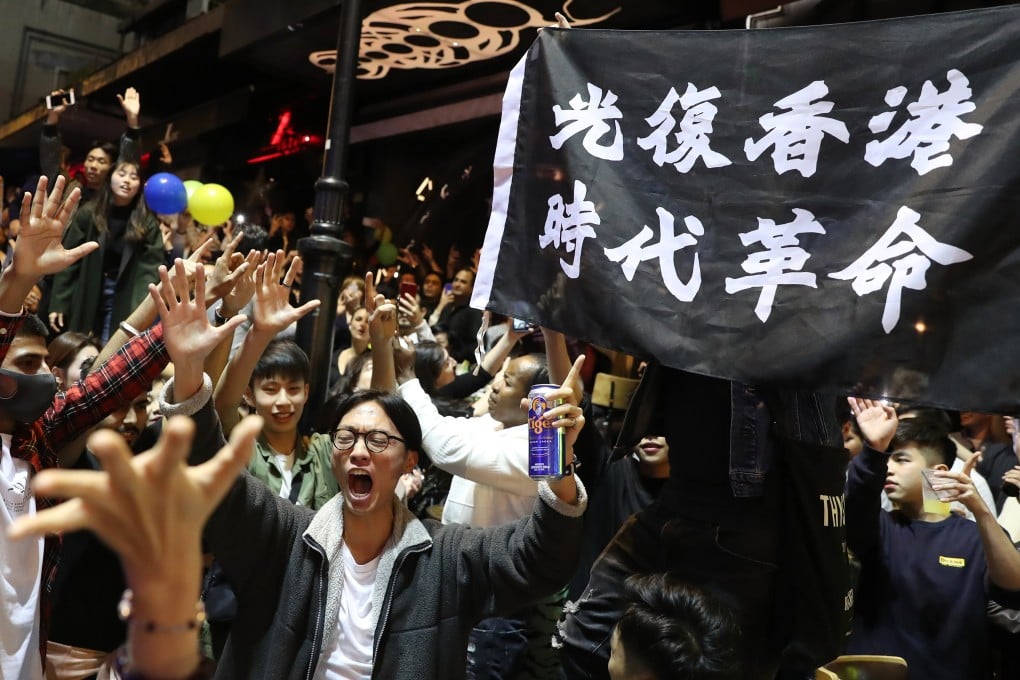National security law: protest slogan ‘Liberate Hong Kong’ can have multiple meanings, but is it ultimately a call for secession?
- Defence lawyers argue slogan ‘Liberate Hong Kong; revolution of our times’ can be ambiguous, while prosecutors insist there is only one literal meaning
- Judges say it is sufficient for the prosecution to prove that inciting others to take separatist action is a possible effect

On Tuesday, restaurant worker Leon Tong Ying-kit, 24, was found guilty of inciting others to commit secession and engaging in a terrorist act after crashing his motorcycle into three police officers while carrying a black flag at a July 1 protest in Wan Chai last year.
The court’s judgment turned on the slogan, its meaning and usage, with seven days of the proceedings examining these.
At the heart of the issue for both sides was this: was there only one interpretation to the rallying call being one that promoted secessionist activities, or could it have an alternative meaning?
Prosecutors had insisted the answer to the question was a simple “no”, citing a historian’s opinion and police reports on the demonstrations. They had argued the catchphrase could only carry a literal meaning: to recover or free Hong Kong from the control of the “enemy” and cause a change in the “times” by overthrowing the government.